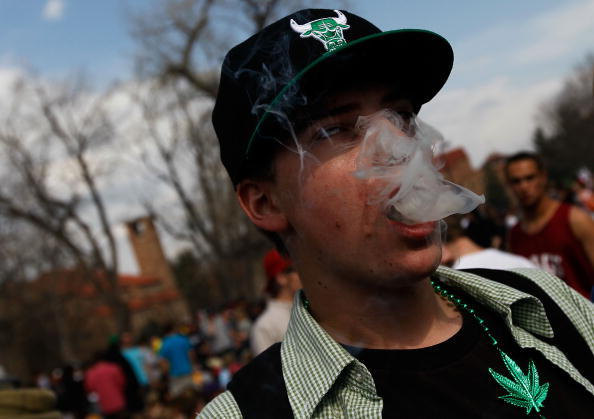Marijuana Is Harmful: Debunking 7 Myths Arguing It’s Fine
< < Go Back
Don’t believe the hype: marijuana legalization poses too many risks to public health and public safety. Based on almost two decades of research, community-based work, and policy practice across three presidential administrations, my new book “Reefer Sanity” discusses some widely held myths about marijuana:
Myth No. 1: “Marijuana is harmless and non-addictive”
No, marijuana is not as dangerous as cocaine or heroin, but calling it harmless or non-addictive denies very clear science embraced by every major medical association that has studied the issue. Scientists now know that the average strength of today’s marijuana is some 5–6 times what it was in the 1960s and 1970s, and some strains are upwards of 10–20 times stronger than in the past—especially if one extracts THC through a butane process. This increased potency has translated to more than 400,000 emergency room visits every year due to things like acute psychotic episodes and panic attacks.
Myth No. 2: “Smoked or eaten marijuana is medicine.”
Just like we don’t smoke opium or inject heroin to get the benefits of morphine, we do not have to smoke marijuana to receive its medical effects. Currently, there is a pill based on marijuana’s active ingredient available at pharmacies, and almost two-dozen countries have approved a new mouth spray based on a marijuana extract. The spray, Sativex, does not get you high,
Myth No. 3: “Countless people are behind bars simply for smoking marijuana.”
I wholeheartedly support reducing America’s incarceration rate. But legalizing marijuana will not make a significant dent in our imprisonment rates. That is because less than 0.3 percent of all state prison inmates are there for smoking marijuana.
Myth No. 4: “The legality of alcohol and tobacco strengthen the case for legal marijuana.”
“Marijuana is safer than alcohol, so marijuana should be treated like alcohol” is a catchy, often-used mantra in the legalization debate. But this assumes that our alcohol policy is something worth modeling. In fact, because they are used at such high rate due to their wide availability, our two legal intoxicants cause more harm, are the cause of more arrests, and kill more people than all illegal drugs combined. Why add a third drug to our list of legal killers?
Myth No. 5: “Legal marijuana will solve the government’s budgetary problems.”
Unfortunately, we can’t expect societal financial gain from marijuana legalization. For every $1 in revenue the U.S. receives in alcohol and tobacco taxes, we spend more than $10 in social costs.
Myth No. 6: “Portugal and Holland provide successful models of legalization.”
Contrary to media reports, Portugal and Holland have not legalized drugs. In Portugal, someone caught with a small amount of drugs is sent to a three-person panel and given treatment, a fine, or a warning and release. The result of this policy is less clear. In the Netherlands, officials seem to be scaling back their marijuana non-enforcement policy (lived out in “coffee shops” across that country) after witnessing higher rates of marijuana use and treatment admissions there. The government now only allows residents to use coffee shops. What all of this tells us about how legalization would play out in the U.S. is another point entirely and even less clear.
Myth No. 7: “Prevention, intervention, and treatment are doomed to fail—So why try?”
Less than 8 percent of Americans smoke marijuana versus 52 percent who drink and 27 percent of people that smoke tobacco cigarettes. Coupled with its legal status, efforts to reduce demand for marijuana can work. Communities that implement local strategies implemented by area-wide coalitions of parents, schools, faith communities, businesses, and, yes, law enforcement, can significantly reduce marijuana use. Brief interventions and treatment for marijuana addiction (which affects about 1 in 6 kids who start using, according to the National Institutes of Health) can also work.
And one myth not found in the book: “Colorado and Washington are examples to follow.”
Experience from Colorado’s recent legalization of recreational marijuana is not promising. Since January, THC-positive test results in the workplace have risen, two recent deaths in Denver have been linked to recreational marijuana use, and the number of parents calling the poison control hotline because their kids consumed marijuana products has significantly risen. Additionally, tax revenues fall short of original projections and the black market for marijuana continues to thrive in Colorado. Though Washington State has not yet implemented its marijuana laws, the percentage of cases involving THC-positive drivers has significantly risen.
More From The Foundry:




